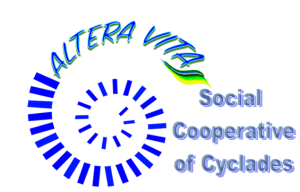Definition of digital services (public or private)
Digital services are those services that can be delivered through digital communication, e.g. internet, mobile phone network that might include delivery of digital information (e.g. data, content) and/or transactional services. They can be either public or private, e.g. e-government, digital banking services, e-commerce, music services (e.g. Spotify), film/tv services (e.g. Netflix).
Definition of digital citizenship and participatory citizenship
Digital Citizenship refers to the ability to engage positively, critically and competently in the digital environment, drawing on the skills of effective communication and creation, to practice forms of social participation that are respectful of human rights and dignity through the responsible use of technology.
According to the European Council, participation and active citizenship is about having the right, the means, the space and the opportunity and, where necessary, the support to participate in and influence decisions and engage in actions and activities so as to contribute to building a better society.
Digital public services
Public administrations, from local to european level, all of them offer e-government services to citizens. In order to be able to interact with administrations in digital environments, the first step is to know what services are available.
At local level, the easiest way to know what services are available is to search for the name of your city council on the internet. It is likely they have a web with information about the city council, services and other relevant information. Some administrations have profiles in social networks like Facebook, they usually post short news and information for the population. It is a good way of being informed about the local news.
Other available digital public services may be applications about public transportation; or smart city applications like Improve My City in which users can report local problems such as potholes, illegal trash dumping, faulty street lights, broken tiles on sidewalks etc. by tagging the problems they find in a map and include pictures. The city council can check directly on the map if the problems are real and go fix them.
If you interact with other users or with local administration in social networks, don’t forget to follow the Netiquette recommendations that you can find on Module 5 of this course.
In any case remind yourself the following rules:
Start with a salutation, introduce yourself and the purpose of the communication in a clear and concise way.
if you are very angry about a situation, try to calm down before sending the message.
Don’t hide under fake names, tracking down the author of offensive or degrading comments is fairly straightforward, and in severe cases can have repercussions.
Writing in capital letters is equivalent to shouting, avoid them.
You may find the available catalogue of the available digital services of your council/region on their website. The easiest way to do it is by searching on your internet browser.
Digital private services
Nowadays, people make use of private digital services almost every day. From streaming services like Netflix to the app from the bank or accounts in digital platforms like Facebook or Instagram.
Some private digital services work under subscription, that means that users pay a fee to make use of such services. The fee can be mensual or annual, and the company will require users to provide a valid payment method in order to provide the service.
Other services are free of use, but still owned by private companies; that is the case of Facebook; users can create their own accounts for free and make use of the platform to post, read news, connect with people etc.
Some digital services provided by private companies complement a face-to-face service and require a formal link to the company that provides the service, like the apps from banks. Such applications allow users to do transactions without having to go to an office.


